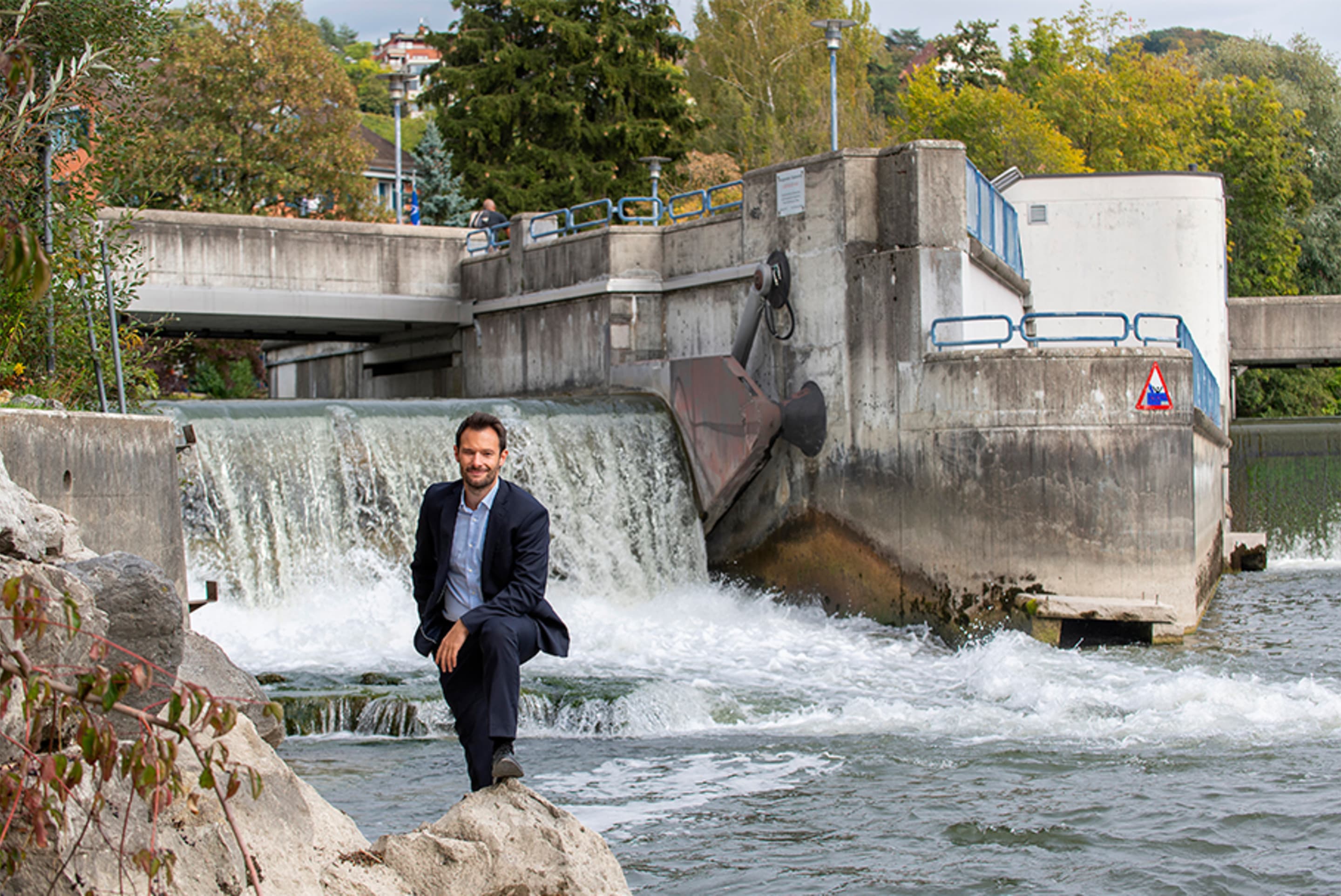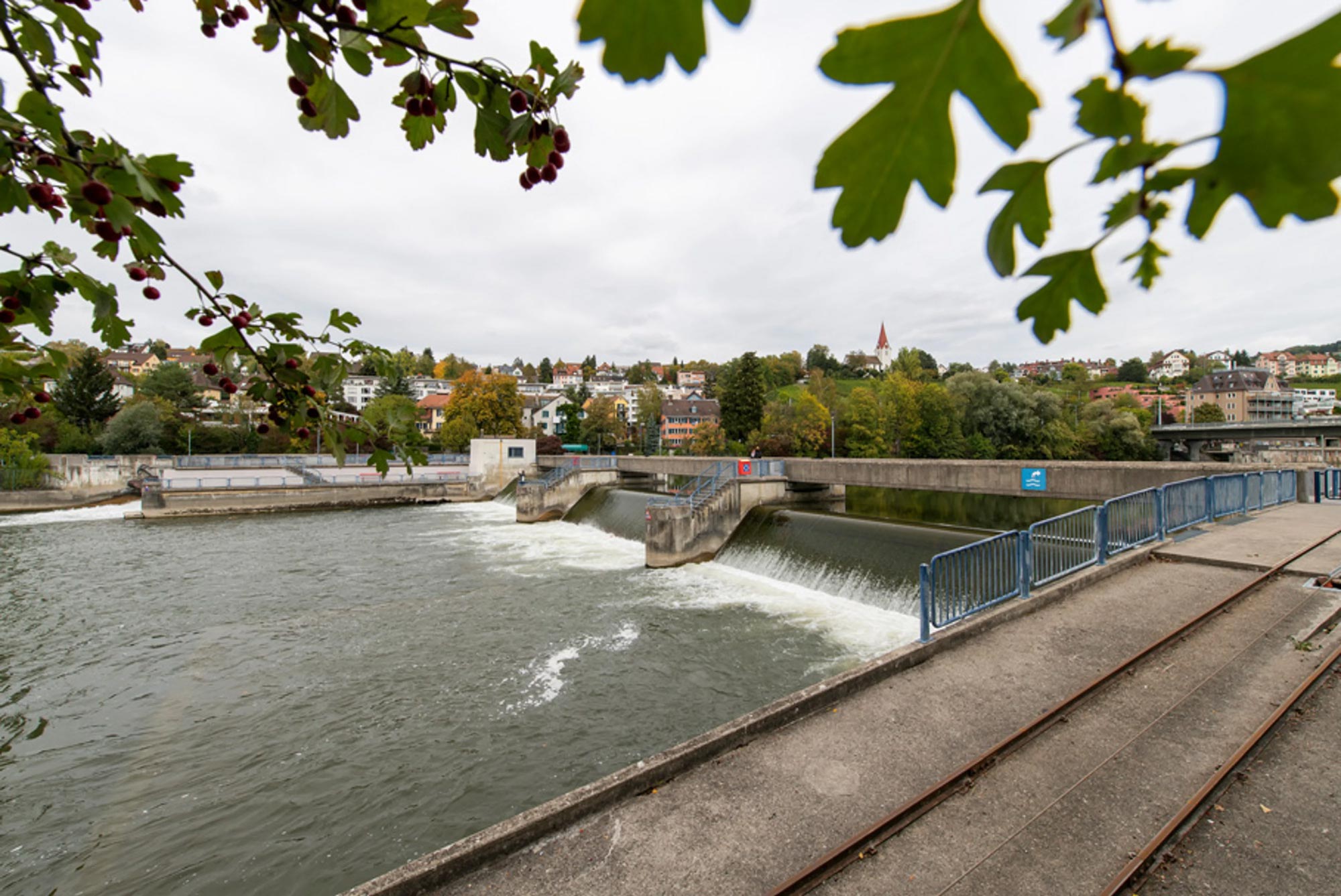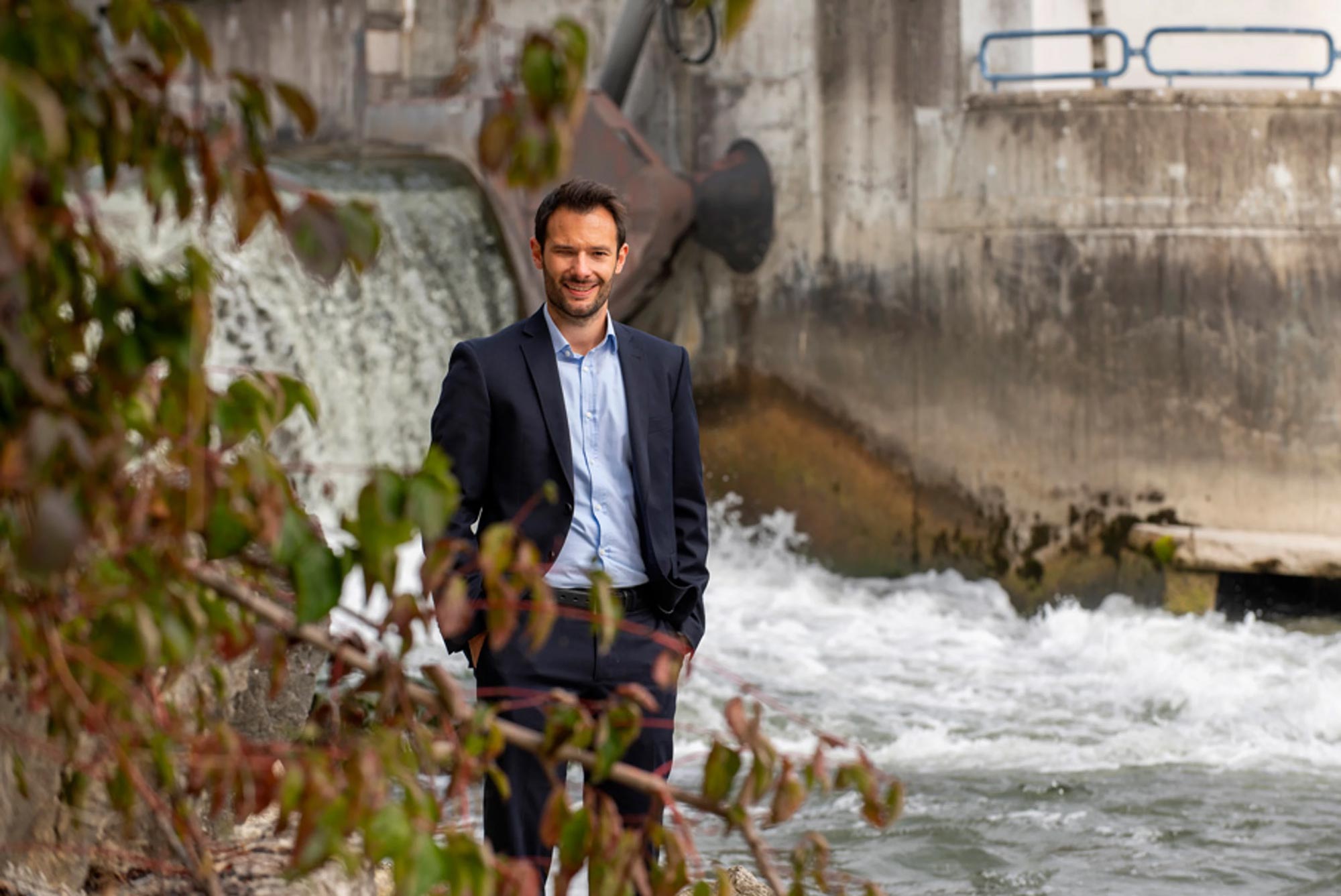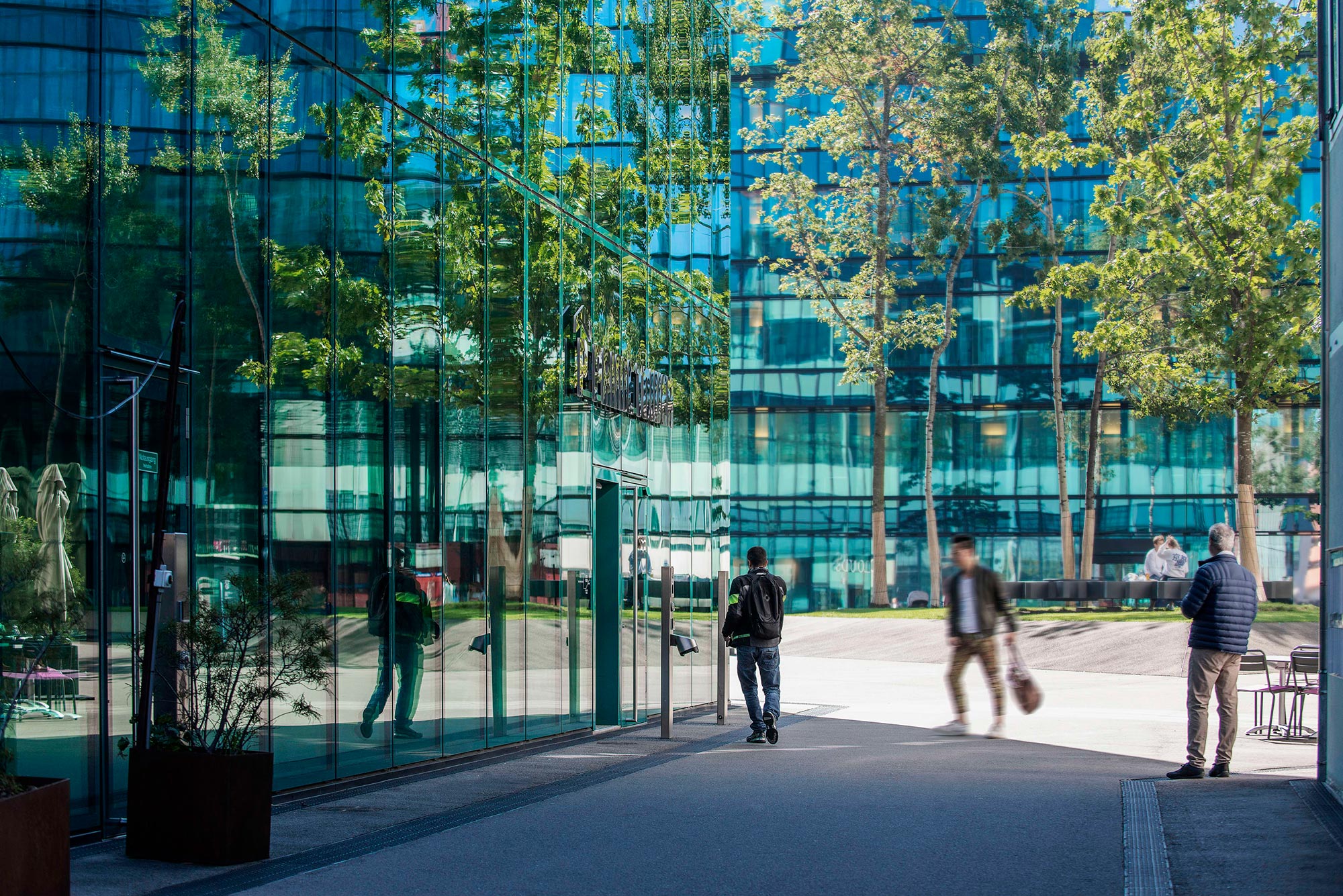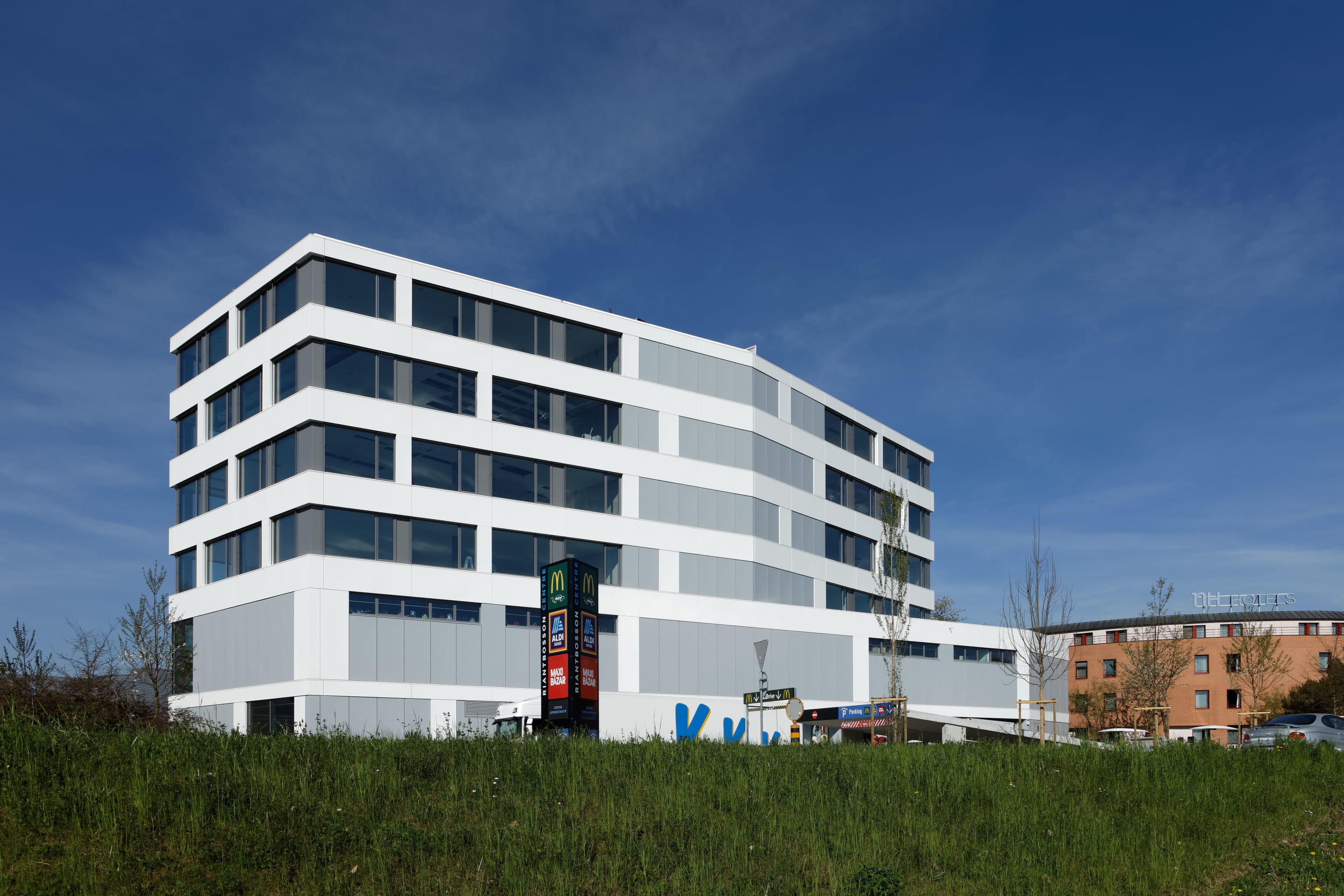Story Detail
Upstream
You cannot talk about energy in a meeting room. So we meet Fehr at the Limmat dam in Höngg instead. Here, just a short walk from the Prime Tower, is an impressive demonstration of the power of water, which accounts for 60% of all electricity generated in Switzerland. Water is ahead of all other sources of renewable energy in Europe. Its big advantage is that it generates constant energy in run-of-river plants and thus covers basic requirements. One such power station stands in Höngg. Hydropower is also indispensable in providing reserve power and covering peak periods. It is a highly reliable source of energy and crucial to the much-discussed energy transition.
Swiss Prime Site knows this very well and relies on electricity from Swiss and European hydropower. For all its properties? «Certainly, that is our goal», Fehr confirms. «At the moment, 59% of Swiss Prime Site properties run on clean energy. That means all properties where this is currently possible. The remaining buildings cannot currently access the liberalised energy market, as they consume less than 100 MWh per year. So the smaller monitoring stations are not part of our centralised portfolio. Not yet.» In 2009, the electricity market was liberalised for large-scale consumers, which can now purchase their own power. Discussions about a more comprehensive liberalisation are still ongoing. Such an extension would give Swiss Prime Site greater room for manoeuvre.
We make our way over the Werdinsel and walk along the Limmat towards the power station. Fehr keeps mentioning the term «pooling». He is referring to the purchasing pool – all properties and every electricity meter for which Wincasa buys energy on the market on behalf of Swiss Prime Site. The property management company does not make these purchases directly, but via Swenex, the Swiss Energy Exchange, an independent energy services company that monitors the market constantly and buys electricity from the electricity exchange based on demand and in coordination with the owners and Wincasa. Structured electricity procurement – another term that Fehr uses frequently. «Essentially, we are already buying power for 2022», he explains. «The market makes this possible. Such forward contracts allow us to plan for the long term and minimise risk. You can compare this with a portfolio of modern financial products. At the moment, the price of electricity is rising. Buying ahead of time benefits us, since our requirements are far from low. What we buy for our pool is gigawatt hours», says Fehr. The advantages are obvious: the more electricity purchased, the better the conditions. Private consumers can barely imagine the bulk discounts involved.
In fact, the concept of «structured electricity procurement» is difficult for non-experts to grasp. It involves buying a product that does not yet exist. «Ultimately, we trade in paper», Fehr elaborates. «In this respect, the electricity exchange is quite similar to financial markets and traditional commodity exchanges. Together with the owner, we have worked out a clear strategy that says, for example, for 2018 we want to buy 90% of the required power today, for next year 60%, for the year after 40%, and so on. This strategy is based on the market. If we anticipate an enormous price hike in the future, we procure more electricity in advance. But we consult Swenex before any such decision. They are the experts. Based on our input, they always know how much power we will require. The most important part of this process is to watch the market and buy at the right time. Of course, the perfect timing becomes clear only in retrospect. But finding the best possible timing is what optimal energy procurement is about. This does not mean, however, that we buy the entire volume at once. The aim is to spread the risk of a premature or late purchase, and thus keep it small.»
What role does Wincasa play in this? «As a real estate service provider, we are an intermediary between Swiss Prime Site, the owner, our property management and the energy procurer. Our task is to coordinate work flows and optimise existing processes.» While this may sound abstract, it can be very concrete in practice. Take invoicing, for example: «Our partners were completely unprepared at first», Fehr recounts. «It was important to us and the managers of the individual properties that consumption and other major items were listed on the invoices. They had to be itemised to ensure that the service cost accounts could be explained plausibly. This was a long process that required a great deal of coordination. Entire parts of the invoicing software had to be adapted to our requirements. We felt quite clearly that we were in a pioneering position, even though the electricity market has been liberalised for nearly a decade. Ultimately, we found a solution that works for everyone.» Three years into the partnership, Fehr and his three-person team have established all the relevant processes, but there is still a lot to do. «We are constantly working on advancing our processes and making them more efficient», Fehr explains. And there are plenty of special situations that keep him and his colleagues on their feet. The sale of a property – and thus the loss of an electricity meter from the purchasing pool – requires organisation.
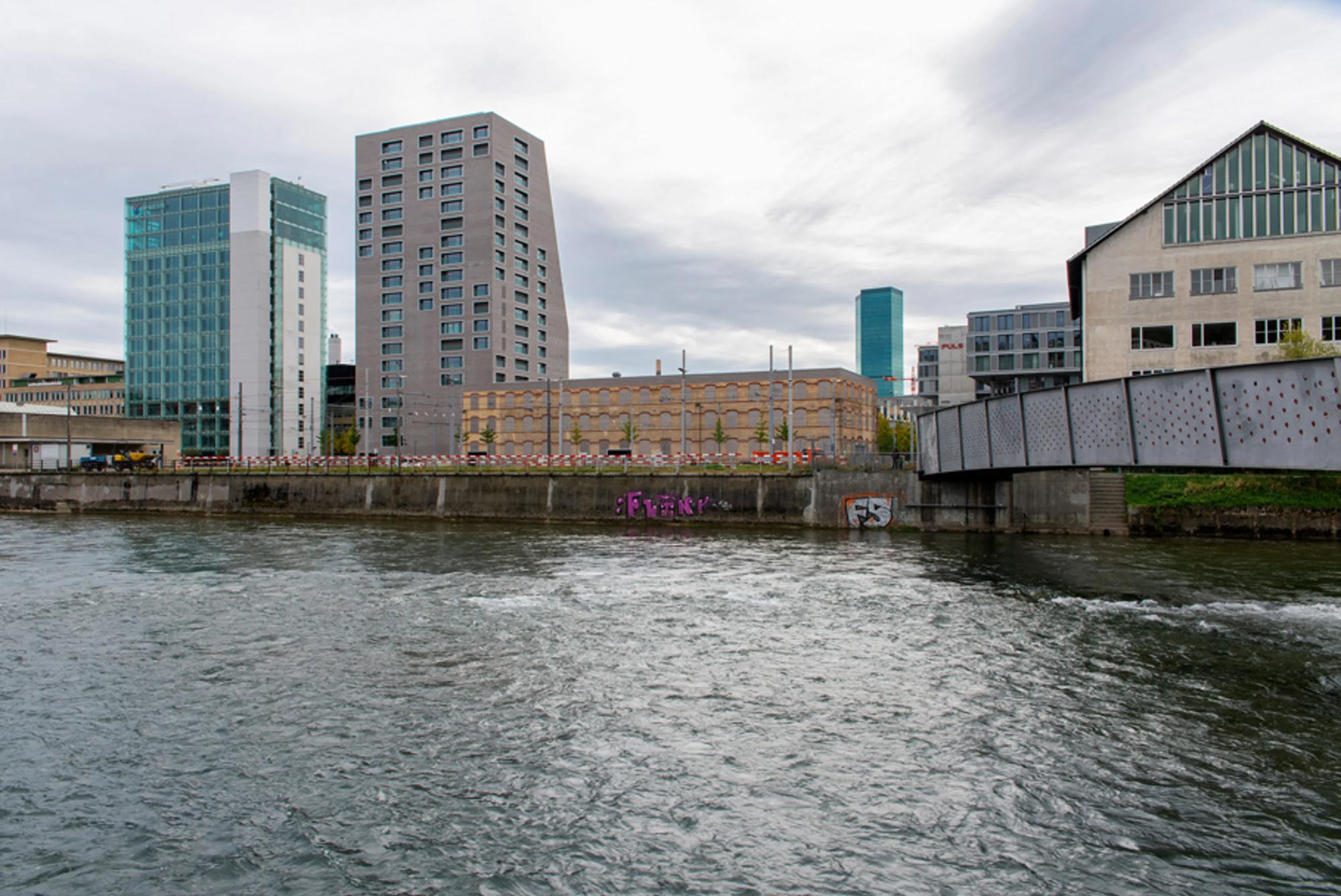
We reach the power plant. It is an orange building with a turbine and a rake screen. What role will hydropower play in the future? What happens if electricity prices continue to rise? Is it not likely that many companies will switch to nuclear power, which is even cheaper? «Electricity in general is becoming more expensive at the moment», Fehr answers. «This also affects nuclear power, not just renewable energies. Thanks to our activities, however, we have reduced our purchasing expenses considerably, which gives us a competitive advantage. But endless optimisation with a disregard for environmental aspects is not compatible with our strategy. Our considerate approach has achieved quite a lot. Of course, there will always be companies that look at prices first and foremost. But Swiss Prime Site lives up to its responsibility. I am not aware of many other companies that focus so consistently on sustainability and are even willing to pay a premium in the short term to achieve it. In the long term, the investment always pays off.»
